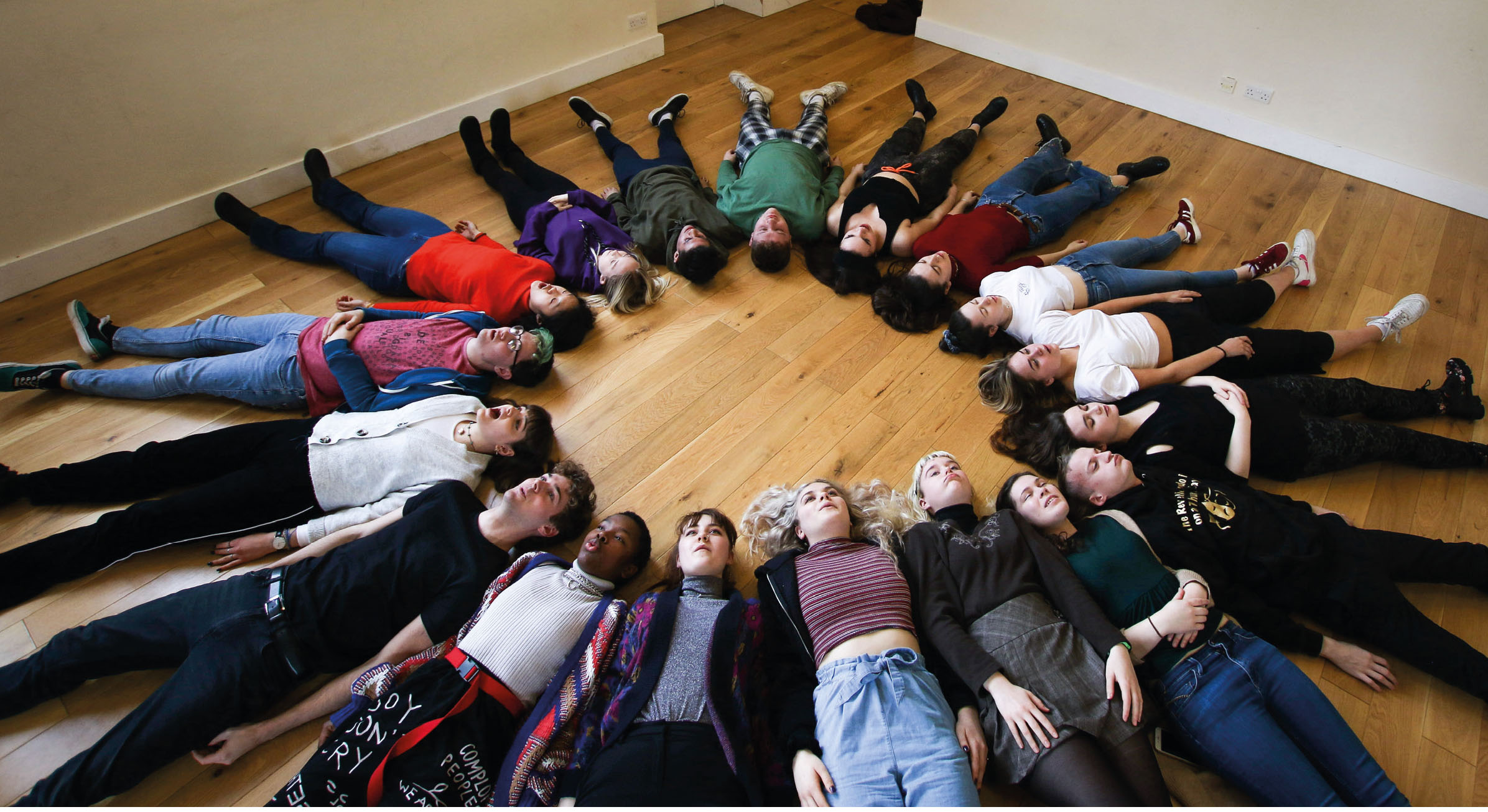
'If you put on a play upstairs in the Royal Court, then audience members come and stroke their beards and think very intensely about it. If you put on a play for Year 9 on a wet Wednesday morning, you don't get afforded that same attention, so it has to be even better,’ says Nina Lemon, artistic director at Peer Productions.
Specialising in high quality training and providing young people with a platform to create theatre and tour schools, Peer Productions is a youth arts charity based in Woking. With the slogan ‘make plays, change lives’, the charity was founded in 2006 by artistic director Nina Lemon, and has continued to grow exponentially since then.
The programmes
The company runs two different free programmes for young actors between the ages of 18 and 24 from across the UK. ‘We take on people who we genuinely believe we can impact their life and make those next steps in their careers as a result,’ says Lemon.
One of the programmes is the Peer Actor Development Programme (PAD), which is a Level 4 Actor Development Programme. This is ideal for young actors leaving college or school, looking to build their practical experience and skills before drama school. Before the pandemic, the school was sending roughly 83 per cent of its students to top drama schools after taking part in this scheme. Currently, Lemon tells me, the school supplies lots of self–tape support, as that is what several drama schools are asking for in their application processes.
Promoting accessibility
Lemon tells me that due to the courses being free, many assume that the training is amateur – something she vehemently wants to set straight. ‘I've had teachers ring me up saying “it can't possibly be free”, because there are so many that are very expensive. There is value attached to the exclusivity of drama schools currently,’ says Lemon. ‘The way it works for us is that our students get the training and experience, and then they don't get paid for the tours they go on for Peer Productions. They get holistic support, and we get brilliant young artists at the start of their careers to represent us.’
Recently, the school has launched a new course – the Peer Employment Pathway Programme (PEP) which offers training for young actors with special educational needs, helping to build their confidence and enable them to access employment.
 © Polly Bycroft-Brown
© Polly Bycroft-Brown
A Peer Productions cohort mid-vocal warmup
Addressing big issues
Boldly, Peer Productions does not shy away from difficult topics when it comes to their shows. Hidden, a show reviewed in issue 97 of D&T, tackles the issue of self-harm with help from leading charities in the field, as well as including themes of bullying, racism, sexual abuse, childhood trauma and depression, while remaining uplifting and informative. As the name suggests, the productions are addressed from a peer-to-peer angle and have had some extremely positive responses from audiences in schools who relate to the young performers.
Lemon believes it is crucial we address difficult topics in theatre in education. ‘We trust our actors to go out and deliver work that is sensitive, and we train them and safeguard them,’ she says. ‘Elsewhere, there is a real disconnect between what is presented to students on stage, and what it is currently like to be a young person. In the case of Hidden, students already know what self–harm is, and we are addressing how best to tackle that as an issue, rather than glorifying anything.’ Lemon mentions the success of another production that addresses knife crime, and a third that targets sex education, reiterating their attitude towards traditionally taboo subject areas.
The voice of students
Ismael, one of the young performers currently on the PAD scheme, says: ‘even in the first two months I could see so much changing about myself as a performer.’ Ismael was part of a devising group who created The Space Between (my head and heart) – a production for primary children about mental health that was so successful, Peer Productions is using it again with the next cohort of PAD students. ‘Initially I thought straight acting was what I wanted to do, but after coming on the course I have realised that directing children's theatre is great, and so are other elements of production,’ says Ismael.
Another student on the course, Jasmine, feels the same way. ‘Unlike some of the other audition processes I had, the one for Peer was quite fun,’ she says. ‘They don't want to break you down – they want to make you a better performer and see what you can bring to the table. The mentors are industry professionals, and I have definitely paid for training that hasn't done as much for me and my career trajectory.’
